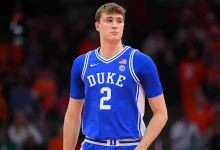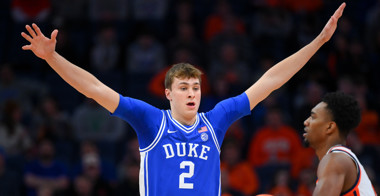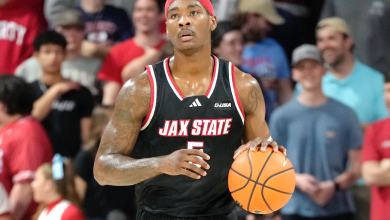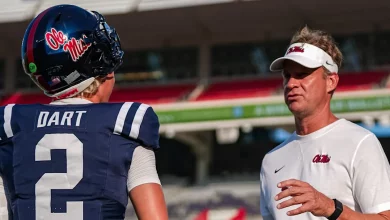Ranking Duke players with the most successful NBA careers involves evaluating their achievements, impact, longevity, and accolades, while comparing Cooper Flagg to their level of competition.

Ranking Duke players with the most successful NBA careers involves evaluating their achievements, impact, longevity, and accolades, while comparing Cooper Flagg to their level of competition.
Duke University has established itself as a powerhouse in college basketball, producing numerous NBA stars who have left indelible marks on the league. From legendary centers to versatile forwards and dynamic guards, Duke alumni have succeeded at various levels, earning accolades, championships, and influencing the game. When assessing the most successful NBA careers of Duke players, it is essential to consider multiple factors—individual achievements, team success, impact on the league, longevity, and overall accolades.
The emergence of Cooper Flagg as a top NBA prospect prompts a comparative analysis. While Flagg’s career is still in its early stages, understanding the accomplishments of Duke’s greatest NBA players provides context for evaluating his potential and the level of competition he will face.
Part I: Criteria for Ranking Duke’s Most Successful NBA Careers
Before listing and analyzing the players, it is crucial to define the criteria:
- Achievements: All-Star selections, MVP awards, championships, and individual honors.
- Impact: Influence on team success, leadership, and contribution to the game’s evolution.
- Longevity: Duration of career and consistency over time.
- Accolades: Awards such as All-NBA Team selections, Defensive Player of the Year, Rookie of the Year, Hall of Fame induction.
- Legacy: Overall influence on the league, cultural significance, and post-retirement contributions.
Using these benchmarks, we will rank Duke players from most to less successful NBA careers, while also contextualizing Cooper Flagg’s emerging potential.
Part II: The Top Duke Players in NBA History
1. Grant Hill
Achievements & Impact:
- 7-time NBA All-Star
- 2nd overall pick in 1994
- Known for versatility, basketball IQ, and leadership
- Played for Detroit Pistons, Orlando Magic, Phoenix Suns, and Los Angeles Clippers
- Career plagued by injuries but maintained high level of play when healthy
Longevity & Accolades:
- Career spanned over a decade, with key contributions during the late 1990s and early 2000s
- Selected to multiple All-NBA Teams
- Inducted into the Naismith Memorial Basketball Hall of Fame (2018)
Legacy:
- One of the most talented Duke alumni whose career was hampered by injuries but still highly impactful.
- Known for his smooth playing style and basketball intelligence.
2. Kyrie Irving
Achievements & Impact:
- NBA Champion (2016), Finals MVP
- Multiple All-Star selections
- One of the premier point guards in the league
- Known for exceptional ball-handling, scoring, and clutch performances
Longevity & Accolades:
- Over a decade of NBA experience
- Consistently ranked among the league’s top point guards
- Recognized for his skill, court vision, and scoring ability
Legacy:
- One of Duke’s most successful recent NBA players
- Continues to influence the game with his skill set
3. Christian Laettner
Achievements & Impact:
- One of the most iconic Duke players, especially for his college success
- NBA career: 13 seasons, primarily with the Minnesota Timberwolves and Atlanta Hawks
- Averaged double figures in scoring and rebounding during his prime
Longevity & Accolades:
- Known for consistency but not superstar level
- Career averages: 9.2 points, 6.4 rebounds per game
- No major individual awards but respected as a solid role player
Legacy:
- Noted for his college heroics; NBA impact was moderate but respectable
4. Elton Brand
Achievements & Impact:
- NBA All-Star (2002)
- Key player for the Clippers and other teams
- Known for scoring, rebounding, and leadership
Longevity & Accolades:
- Nearly 17 seasons
- Career averages of 16.1 points and 8.6 rebounds per game
- Impactful as a franchise cornerstone
Legacy:
- Respected for his consistency and leadership
5. Anthony Davis
Achievements & Impact:
- Multiple-time NBA All-Star
- NBA Champion (2020 with the Los Angeles Lakers)
- Defensive Player of the Year (2018)
- Known for elite defense, rebounding, and scoring
Longevity & Accolades:
- Still in the prime of his career, with many more years to add to his legacy
- Recognized as one of the best big men of his generation
Impact:
- Transformed teams defensively and offensively
- A defining figure among Duke’s recent NBA stars
6. Jayson Tatum
Achievements & Impact:
- Multiple All-Star selections
- Led Boston Celtics deep into playoffs
- Known for scoring, versatility, and leadership
Longevity & Accolades:
- Still ascending, with potential for more awards
- Has become one of the league’s premier forwards
7. Shane Battier
Achievements & Impact:
- Two-time NBA champion
- Known for defense, leadership, and basketball IQ
- Selected to All-Defensive Teams
Legacy:
- Valued as a role player who made significant contributions on championship-winning teams
8. Luol Deng
Achievements & Impact:
- NBA All-Star (2012)
- Known for defense, scoring, and leadership
- Played over a decade with multiple teams
Legacy:
- Respected for consistency and work ethic
Part III: Comparing Cooper Flagg to Duke’s NBA Elite
While Flagg’s career is still in its early stages, several factors allow us to make preliminary comparisons:
- Potential: Flagg is projected as a versatile, elite defender and scorer with a high basketball IQ.
- Physical Tools: His size, wingspan, and athleticism resemble some of Duke’s top players like Anthony Davis.
- Development Path: If he follows a trajectory similar to previous Duke stars, he could develop into a multi-time All-Star or even a league MVP candidate.
Level of Competition:
- Flagg will face a highly competitive environment in the NBA, where he must adapt to faster pace, stronger opponents, and more complex schemes.
- Comparing his competition to that faced by players like Kyrie Irving or Anthony Davis, Flagg will encounter a different set of challenges, emphasizing skill development and consistency.
Part IV: The Significance of Duke’s NBA Legacy and Flagg’s Future
Duke’s reputation for developing NBA talent is built on a tradition of high basketball IQ, fundamental skills, and leadership qualities. The success of players like Grant Hill and Kyrie Irving demonstrates that Duke’s program prepares athletes for the rigors of the NBA.
For Flagg, succeeding at the highest level will require:
- Continued Skill Development: Shooting, decision-making, and defensive versatility.
- Adaptability: Adjusting to NBA speed, physicality, and strategic complexity.
- Leadership: Becoming a team leader and maintaining mental toughness.
If he lives up to his potential, Flagg could join the ranks of Duke’s most successful NBA players, influencing the league similarly to those who came before him.
Duke University’s history of producing successful NBA players is rich and varied, with stars like Grant Hill, Kyrie Irving, Anthony Davis, and Elton Brand setting high standards. These players have achieved All-Star selections, championships, and Hall of Fame recognition, demonstrating the program’s ability to prepare athletes for the league’s highest levels.
Comparatively, Cooper Flagg’s emerging talent positions him as a potential future NBA star who could rise to similar heights. His development will determine whether he can surpass or match the legacy of Duke’s greatest NBA alumni.
In evaluating Flagg’s competition, it’s clear that the NBA is increasingly competitive, demanding a combination of skill, athleticism, basketball IQ, and mental toughness—attributes Flagg appears to possess. As he progresses toward his NBA career, he will face the challenge of adapting to the league’s elite, but his foundation, combined with Duke’s storied tradition, suggests he has the tools to succeed.
The trajectory of Flagg’s career remains to be seen, but if history is any indicator, Duke’s next No. 1 overall pick may become one of the league’s defining players in the coming years, continuing the university’s legacy of excellence on the professional stage.









